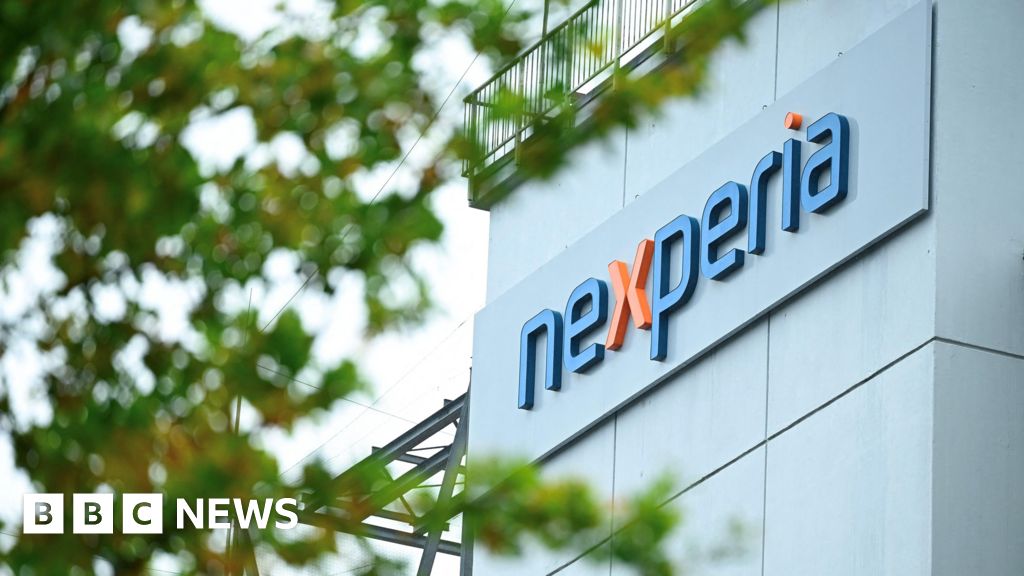Politics
BBC boss Davie, news chief Turness quit after Trump documentary edit backlash
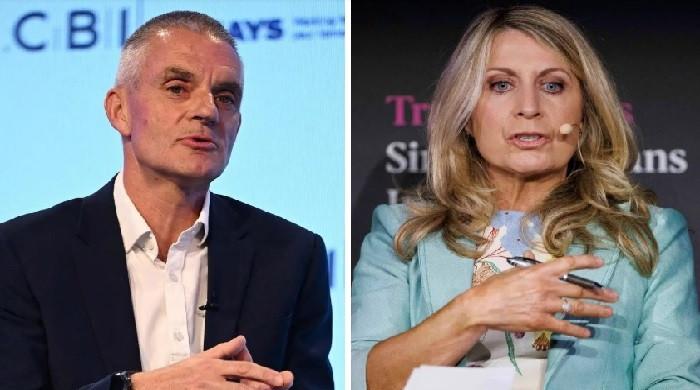
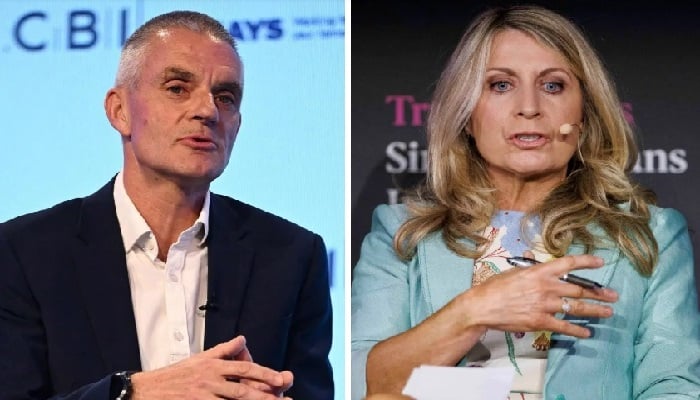
- BBC was accused of bias over Trump, Gaza and trans issues.
- US had blamed BBC for being a “propaganda machine”
- BBC board stunned by Davie’s resignation.
The BBC Director General Tim Davie and Head of News Deborah Turness resigned on Sunday amid mounting criticism over perceived bias at the British broadcaster, including questions over the editing of a US President Donald Trump speech in a recent documentary.
The BBC had been under mounting pressure after an internal report by a former standards adviser was leaked to the Daily Telegraph newspaper, which cited failings in its coverage of the Israel-Hamas war, trans issues and a speech made by Trump.
The White House had recently denounced the broadcaster as a “propaganda machine” after its flagship Panorama documentary programme was found to have edited two parts of Trump’s speech together so he appeared to encourage the Capitol Hill riots of January 2021.
Davie, who has led the British Broadcasting Corporation since 2020, said he had decided to step down after “reflecting on the very intense personal and professional demands of managing this role over many years in these febrile times”.
Turness, the CEO of BBC News, also quit.
Respected abroad, questioned for news judgment
Widely respected around the world, the BBC has in recent years been accused of failing to maintain its commitment to impartial news, struggling to navigate the deeply polarised political and social environment.
The corporation, which is funded by a licence fee paid by all television-watching households, also comes under intense scrutiny from some national newspapers and social media, which object to its funding model and perceived liberal stance.
In recent years it had struggled to contain scandals over the opinion on immigration of its most highly paid sports presenter, Gary Lineker, which briefly led to a walk-out by staff, while it was condemned for showing a punk-rap duo Bob Vylan chanting against the Israeli military at Glastonbury.
It also pulled a documentary about Gaza earlier this year because it featured the son of a deputy minister in the Hamas-run government.
In the Panorama documentary, Trump was shown telling his supporters that “we’re going to walk down to the Capitol” and that they would “fight like hell”, a comment he made in a different part of his speech.
He had actually followed up that remark about walking to the Capitol by saying they would “cheer on our brave senators and congressmen and women”.
Trump’s press secretary, Karoline Leavitt, described the BBC as “100% fake news” in an interview published on Friday.
Turness denies bias claims
British culture minister Lisa Nandy thanked Davie for his work as director general, saying he had led the broadcaster through a period of significant change.
A person familiar with the situation said Davie’s decision had left the BBC board stunned, and he would stay on for the next few months while a replacement was found.
Davie said in “these increasingly polarised times” the BBC was of unique value, helping to build a healthy society and thriving creative sector, arguing it should be championed, not weaponised.
But he said it was not perfect, and while the recent scandal was not the only reason for his departure, it had been a factor, and he had to take ultimate responsibility.
The BBC, which has to negotiate a new charter with the government in 2027 to guarantee its future finances, had appeared to struggle to respond to the recent run of negative headlines.
The chairman, Samir Shah, had been expected to apologise to lawmakers for the furore on Monday.
Turness said in an email to staff that while mistakes had been made, “I want to be absolutely clear, recent allegations that BBC News is institutionally biased are wrong.”
Politics
Before talks with Trump, Saudi Arabia doubles down on its terms for Israel ties
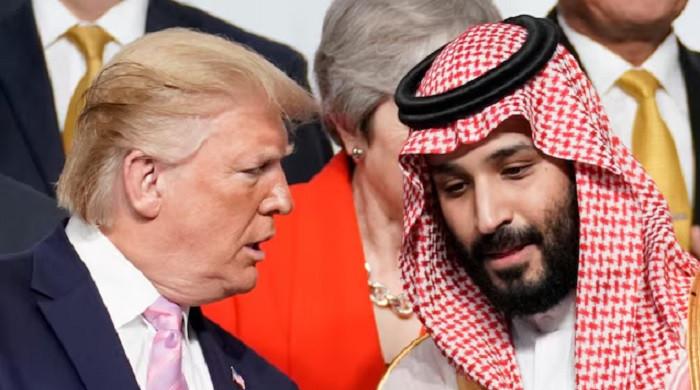
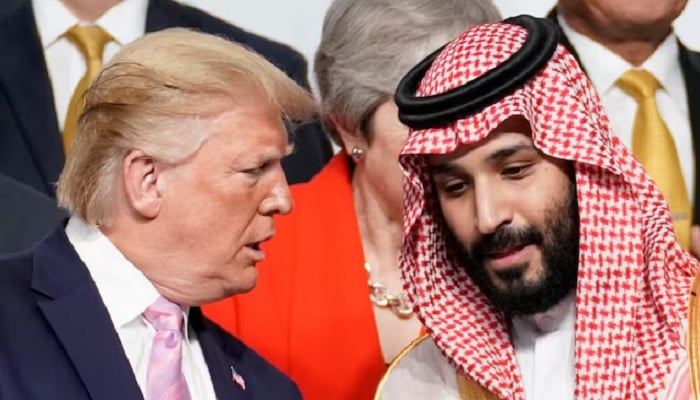
- Saudi Crown Prince will meet Trump on November 18.
- They are set to seal a defence pact at White House talks.
- US president wants Saudi Arabia to normalise ties with Israel.
Saudi Crown Prince Mohammed bin Salman is set to visit the White House this month, but despite US President Donald Trump repeatedly touting an imminent breakthrough, diplomats say Riyadh is unlikely to seal any deal to normalise ties with Israel during the trip.
The establishment of diplomatic relations between Israel and Saudi Arabia after decades of enmity could shake up the political and security landscape in the Middle East, potentially strengthening US influence in the region.
Trump said last month he hoped Saudi Arabia would “very soon” join other Muslim countries that signed the 2020 Abraham Accords normalising ties with Israel.
But Riyadh has signalled to Washington through diplomatic channels that its position has not changed: it will sign up only if there is agreement on a roadmap to Palestinian statehood, two Gulf sources told Reuters.
The intention is to avoid diplomatic missteps and ensure alignment of the Saudi and US positions before any public statements are made, they said. One said the aim was to avoid any confusion at or after the White House talks on November 18.
The Crown Prince, widely known as MBS, “is not likely to entertain any possible formalising of ties in the near future without at least a credible pathway to a Palestinian state,” said Jonathan Panikoff, former deputy US national intelligence officer on the Middle East.
MBS is likely to try to use his influence with Trump to seek “more explicit and vocal buy-in for the establishment of a sovereign Palestinian state,” said Panikoff, who is now at the Atlantic Council think tank in Washington.
Trump’s upbeat comments on Abraham Accords
Next week’s visit is the Crown Prince’s first to Washington since the 2018 killing of Washington Post columnist Jamal Khashoggi, an MbS critic whose murder in the Saudi consulate in Istanbul caused global outrage. MbS denied direct involvement.
The United Arab Emirates, Bahrain and Morocco have already normalised ties with Israel under the Abraham Accords, and Trump has said he expects an expansion of the accords soon.
“We have a lot of people joining now the Abraham Accords, and hopefully we’re going to get Saudi Arabia very soon,” he said on November 5, without offering a timeline.
In a television interview broadcast on October 17, he said, “I hope to see Saudi Arabia go in, and I hope to see others go in. I think when Saudi Arabia goes in, everybody goes in.”
But the agreement signed by the United Arab Emirates, Bahrain and Morocco sidestepped the issue of Palestinian statehood.
The two Gulf sources said Riyadh had signalled to Washington that any move to recognise Israel must be part of a new framework, not just an extension of any deal.
For Saudi Arabia — the birthplace of Islam and custodian of its two holiest sites, Mecca and Medina – recognising Israel would be more than just a diplomatic milestone. It is a deeply sensitive national security issue tied to resolving one of the region’s oldest and most intractable conflicts.
Such a step would be hard to take when the Arab public’s mistrust of Israel remains high over the scale of its military offensive during the war against the Palestinian militant group Hamas in Gaza, despite a fragile ceasefire in the conflict that followed the Hamas-led attack on southern Israel on October 7, 2023.
Saudi Foreign Ministry official Manal Radwan has called for a clear, time-bound Israeli withdrawal from the Gaza Strip, the deployment of an international protection force and the empowerment and return of the Palestinian Authority to Gaza.
These steps, she said, are essential to the establishment of a Palestinian state – the prerequisite for regional integration and the implementation of the two-state solution.
With Israeli Prime Minister Benjamin Netanyahu staunchly opposed to Palestinian statehood, Saudi Arabia sees no immediate prospect of satisfying Trump’s demand that it normalise ties with Israel, the sources told Reuters.
Progress on that front depends on concessions neither Washington nor Israel is currently prepared to make, Saudi officials say.
Trump and Crown Prince set to seal defence pact
Saudi officials are intent on steering the Trump-MbS meeting towards defence cooperation and investment, wary that the politically charged issue of normalisation of ties with Israel could overshadow the agenda.
The meeting is expected to seal a pivotal defence pact defining the scope of US military protection for the de facto ruler of the world’s top oil exporter, and to cement America’s military footprint in the Gulf.
The prospective deal has, however, been scaled back.
Two other Gulf sources and three Western diplomats said the defence deal falls short of the full, Congress-ratified treaty Riyadh once sought in exchange for the long-promised normalisation of ties with Israel.
The agreement, loosely modelled on an arrangement with Qatar that was established through an executive order in September, expands cooperation to include cutting-edge technology and defence.
Riyadh, according to the two Gulf sources, pushed for provisions to allow future US administrations to elevate the pact to a full treaty – a safeguard to ensure continuity for a non-binding pact, vulnerable to reversal by future presidents.
“It’s not the treaty they want; they might not see it as perfect, but it’s a stepping stone (to a full treaty),” said David Makovsky, a fellow at the Washington Institute, where he directs a project on Arab-Israeli relations.
The linkage between the defence pact, normalisation with Israel and Palestinian statehood has produced a complex negotiating equation, pushing Riyadh and Washington to settle for a limited defence deal in the absence of progress on the other two tracks, the Gulf sources and Western diplomats said.
That compromise, they say, could eventually evolve into a full treaty if normalisation advances.
“The Saudi-American negotiations have undergone a fundamental shift in environment and context following the developments in Gaza since October 7,” said Abdulaziz Sager, head of the Saudi-based Gulf Research Institute think tank.
He said the direct linkage between normalisation of ties with Israel and Palestinian statehood remained, but Riyadh now wanted Saudi national security requirements addressed separately.
“The Saudi position is clear: meeting the Kingdom’s national security demands will help shape its broader stance on regional issues, including the resolution of the Palestinian-Israeli conflict,” he said.
Threat from Iran receding
A NATO-style defence pact appears a distant prospect, given the shifting regional calculus and the political hurdles in Washington.
Iran, the main threat once driving Riyadh’s pursuit of binding US guarantees, has been strategically weakened over the past year by Israeli strikes on its nuclear and military infrastructure.
Tehran’s proxies – the Hezbollah movement in Lebanon, Hamas in Gaza and the Houthis in Yemen – have also suffered heavy blows.
With pressure from Iran easing, the appetite for a treaty requiring two-thirds congressional approval has diminished, especially in the absence of normalisation with Israel.
The two Gulf sources said such a pact would likely come with conditions, including curbs on Saudi Arabia’s expanding economic and technology ties with China, complicating Riyadh’s drive to balance strategic autonomy with US security guarantees.
The current deal would expand joint military exercises, deepen cooperation between US and Saudi defence firms, and include safeguards to limit Riyadh’s military-industrial ties with China, the sources said.
It would also fast-track advanced US weapons sales to the kingdom, bypassing the delays and political hurdles that have stalled previous deals.
Politics
Super Typhoon Fung-wong slams into Philippines, two dead
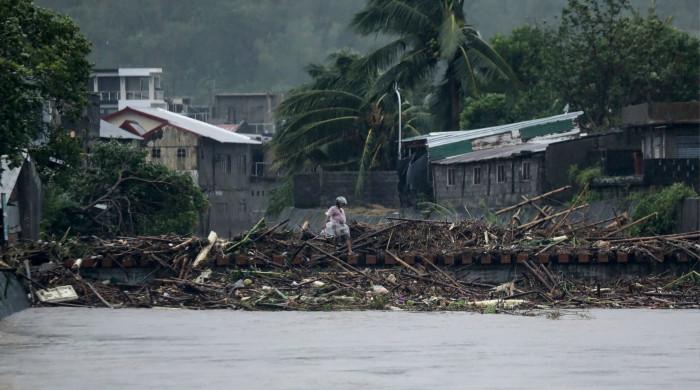
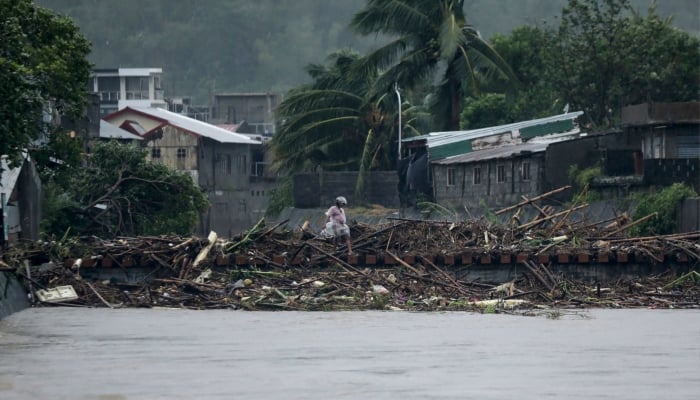
- 21st storm of 2025 to hit Philippines makes landfall.
- Two die from drowning and debris in heavy rains and wind.
- Pope Leo offers prayers for predominantly Catholic nation.
ISABELA: Super Typhoon Fung-Wong made landfall in the Philippines on Sunday with two fatalities reported and one million people evacuated ahead of one of the nation’s most powerful storms this year.
The storm crossed over the north of the archipelago’s most populous island, Luzon, weather bureau PAGASA said, with torrential rain, sustained winds of 185 kph (115 mph) and gusts of up to 230 kph (140 mph).
It was the 21st storm this year to hit a nation only just recovering from Typhoon Kalmaegi, which left 224 dead in the Philippines and five in Vietnam.
“We heard on the news that the typhoon is very strong, so we evacuated early,” said Christopher Sanchez, 50, who camped with his family on a basketball court in Isabela province on Luzon.
Given previous flooding, the family moved their possessions to their roof before leaving. “We’re scared. We’re here with our grandchildren and our kids,” he said in the sports arena dotted by tents, elderly people on plastic chairs, and children roaming.
Fatalities
Luzon and another island, Eastern Visayas, bore the brunt of the storm’s early onslaught, with one person drowned and another trapped under debris, authorities said.
The storm was expected to weaken as it moved inland.
Pope Leo offered prayers for the predominantly Catholic nation. “I am close to the people of the Philippines affected by a violent typhoon. I pray for the deceased and their families, for the injured and the displaced,” he said on Sunday.
In Luzon island’s Aurora province, where the storm arrived, lights went out but phone lines were still working, civil defence official Cheng Quizon told DZBB radio.
Several airports, including Sangley near the capital Manila and Bicol to the south, closed.
Fung-Wong is expected to head north of the Philippines and reach coastal waters on Monday morning while remaining a typhoon, PAGASA said, before heading out to sea and weakening as it reaches western Taiwan on Thursday.
Politics
Migrant shipwreck off Malaysia kills at least seven
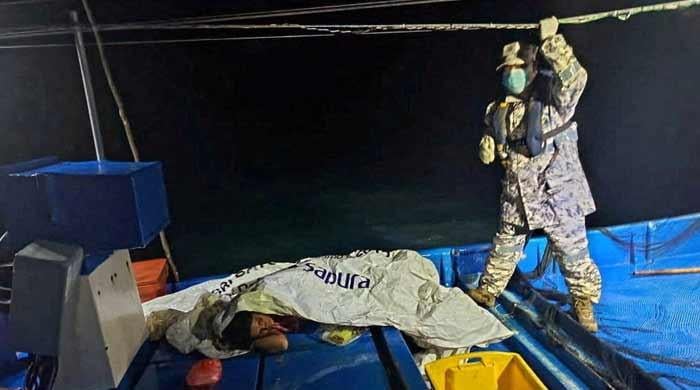
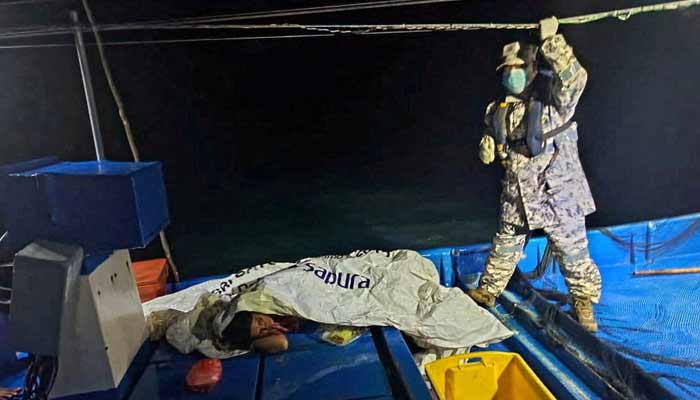
Malaysian authorities have recovered at least seven bodies after a boat carrying migrants capsized near the Thai border, a maritime agency official said on Sunday.
Officials believe the boat was carrying undocumented migrants who departed from Myanmar, part of a group of at least 300 people that had split between several vessels.
The boat that capsized near Thailand’s Tarutao Island and just north of Malaysia’s island resort of Langkawi was carrying some 90 people, Kedah state police chief Adzli Abu Shah told Malaysian media.
Romli Mustafa, director of the Malaysian Maritime Enforcement Agency in the northern states of Kedah and Perlis, said in a statement that three survivors were found on Sunday in the waters around Langkawi as well as six bodies, taking the overall death toll to seven.
At least 13 people have been rescued alive.
Romli said the bodies recovered on Sunday were of a girl and five women, without disclosing their nationality or ethnicity.
A body found on Saturday is believed to be of a woman from Myanmar’s persecuted Rohingya minority, Adzli told the Bernama national news agency.
The search and rescue effort ended for the day and will resume on Monday, Romli added, saying it was possible more survivors or victims could be found at sea.
The boat likely went down three days ago, according to the state police chief.
Two other vessels, believed to be carrying some of the group of 300 migrants who had departed from Myanmar, have also been reported missing, Adzli was quoted as saying by the Free Malaysia Today news website.
He said preliminary investigations showed that the group boarded a large vessel that carried them into waters close to Malaysia.
“As they neared the border they were instructed to transfer onto three smaller boats, each carrying around 100 people,” he told Bernama.
“We have requested the Malaysian Maritime Enforcement Agency and the Marine Police to launch search and rescue operations and to look for the other missing boats,” Adzli said, quoted by the New Straits Times.
The Malaysian police force did not respond to AFP’s requests for comment.
Relatively affluent Malaysia is home to millions of migrants from poorer parts of Asia, many of them undocumented, working in industries including construction and agriculture.
But the crossings, facilitated by human trafficking syndicates, are often hazardous, leading to boats capsizing.
“Cross-border syndicates are now increasingly active in exploiting migrants by making them victims of human trafficking using high-risk sea routes,” Romli said.
Syndicates charge up to $3,500 per person for passage into the country, Malaysian media said.
In one of the worst months, in December 2021, more than 20 migrants drowned in several incidents off the Malaysian coast.
-

 Tech1 week ago
Tech1 week agoGear News of the Week: Withings Launches Its Pee Scanner, and Samsung Shows Off a Trifold Phone
-

 Business1 week ago
Business1 week agoAndy Jassy Reveals Real Reason Behind Amazon 14,000 Job Cuts — And It’s Not AI
-

 Sports1 week ago
Sports1 week agoTudor’s Juve exit means McKennie must prove himself all over again
-

 Fashion1 week ago
Fashion1 week agoIndia’s Raymond Lifestyle Ltd’s Q2 FY26 revenue rises 8% to $211.5 mn
-
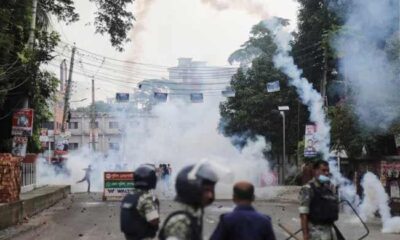
 Politics1 week ago
Politics1 week agoPolitical violence kills almost 300 since Hasina’s fall: rights group
-

 Politics1 week ago
Politics1 week agoIran vows to rebuild nuclear sites ‘stronger than before’
-

 Tech1 week ago
Tech1 week agoStep Away From Screens With the Best Family Board Games
-

 Sports1 week ago
Sports1 week agoPakistani runners make their mark at Istanbul Marathon




